- Home
- Brian S. Wheeler
The Dusty Dead in the Valley of the Blossoms
The Dusty Dead in the Valley of the Blossoms Read online
SPECIAL THANKS FOR DOWNLOADING THIS FREE EBOOK
Fallen Stardust: A boy, an outcast and an alien must find salvation in a world of ruin. Samuel must find a medicine to cure the fever ravaging his village. Markus must find the motive that murdered those he loved. And an angel must find a future in a city crumbled into debris. But something lurks beneath the wasted world, and waking it may doom what little of humanity survives.
The Sisters Will Dance: Blaine Woosely claws his way back to the living. He has cleaned his blood of his addiction, and an unexpected, family farm home rewards his efforts. Only, the country acres isolate Blaine when a sharp-toothed monster hunts to bring Blaine back to dark. The sad history of Blaine's blood brings magic to the country home's new master, but in the end, only Blaine himself can break his chains.
Mr. Hancock’s Signature: The dead walk in Monteray. The corpse of a nearly forgotten farmer named Hancock arrives via train. Ian Washington remembers Mr. Hancock and vows to return the body home. Yet Mr. Hancock's body will not rest while Ian works to reopen a cemetery, and the corpse staring each morning upon the doorstep forces the town to choose between the isolation of their fear or the hope of their fellowship.
The Dusty Dead in the Valley of the Blossoms
Brian S. Wheeler
Flatland Fiction thanks you for your purchase of this ebook. This ebook remains the copyrighted property of the author and may not be reproduced, scanned, or distributed for any commercial or non-commercial use without permission from the author. Quotes used in reviews are the exception. No alteration of content is allowed. If you enjoy this ebook, Flatland Fiction encourages you to send us a review at [email protected]. Unless otherwise instructed, Flatland Fiction reserves the right to post such reviews online.
Your support and respect for the property of this author is appreciated.
This book is a work of fiction and any resemblance to persons, living or dead, or places, events or locales is purely coincidental. The characters are productions of the author’s imagination and used fictitiously.
Copyright © 2013 by Brian S. Wheeler
The Dusty Dead in the Valley of the Blossoms
Contents
Chapter 1 – Sunflowers and Dust
Chapter 2 – A Skill That Could Not Be Taught
Chapter 3 – To Steal Color with Cruelty
Chapter 4 – Interrogation and Execution
Chapter 5 – Widows Dressed in Black
Chapter 6 – The White Witch
Chapter 7 – Risen Claws of Dust
Chapter 8 – Bloom
Like This Story
Help Spread This Story
About the Writer
Other Stories
Chapter 1 - Sunflowers and Dust...
The ground rumbled. The leaning, clay home shook and cracked. The small girl flinched and buried her head into her grandfather's chest.
"Will the armies march into our valley, Pa Pa? Will the soldiers fight in our streets?"
The dust on the old man's skin deepened the furrow's upon his face as he frowned. The hills that overlooked their homes nestled in that valley of color smoldered with the flash of growling cannons, with the campfires of gathered armies, with the hatred of men who waited for morning to rise and deliver battle.
"The soldiers will not march in our streets, Sunflower," answered the grandfather. "Our thirteen protectors will rise from the dust to defend us."
Shells whistled above the valley before exploding upon the surrounding hills, their shrieking whistles fading into the distant wails of men. Wind-chimes rattled upon front porches. The grandfather gripped his granddaughter more tightly as silence followed the cacophony that thundered from the warring hills.
A woman's voice shrilled from within that leaning home.
"Henry! Don't be a fool! The porch is no place for an old man and a little girl when war surrounds us in those hills! Get inside while you can!"
Henry squeezed his Sunflower's hand. "Hush woman! The porch is as safe as anywhere else in the village. No soldier will step onto our streets. Our protectors will rise and defend us."
"Maker save us all!" The cannons remained silent as the woman screamed from the home. "I married a fool all those lost years ago! I beg the Maker to protect my Sunflower even if my husband would put his faith in blasphemous fables!"
"Woman, I told you to hush!"
Wind swirled down the village's dry streets, kicking thin, wisps of dust into the night's air. In the hills, men shouted as rifle barrels flashed before the din of those guns echoed off the village’s walls.
The young girl pulled her face out of her grandfather's chest and gazed into the old man's clouded, cataract eyes. "Will the protectors defend my father, Pa Pa?"
Henry paused a moment before replying. "They will not think your father an enemy."
"But will they protect him?"
"The will protect him, Sunflower."
Henry pressed his granddaughter closer to him to hide her from the tears that gathered in his eyes. It had been three mornings since his son had walked into those hills to herd the family's livestock back behind their village fences. Henry feared that a stubborn steer, or perhaps a weak calf, had hampered his son so that he could not shepherd that herd back before drawing the attention of the armies camped in the hills. Henry doubted that any uniformed soldier would hesitate to kill a simple, poor villager who strayed too close to their rifles' barrels.
The thought came to Henry that perhaps the village protectors, instead of an army, had found his son. Was the roar of cannon and gunfire enough to rouse those protectors from their deep slumber? Would the protectors shelter and protect his son? Would the protectors care to distinguish the meek from the strong, or would those protecters simply deliver their fury upon any soul with such poor luck as to stumble into their arms?
The girl squirmed against her grandfather. "Tell me the story about the village's protectors, Pa Pa."
Henry frowned. "Why would a little girl want to know such a story?"
"My father told me to ask you to tell it to me if I ever got scared," the girl whispered. "He told me to ask you to tell it if he wasn't around to hold me."
Henry nodded. His son had left for that herd well aware of the danger that faced him in those hills. Henry had not raised a foolish boy. Henry had raised a man who recognized that for his family welfare he must try to bring that livestock back before armies arrived to claim the herd. Henry had raised a son who recognized the world for what it was, and that a story about monsters could give a little girl courage.
"I will tell you the story of our thirteen protectors, Sunflower."
"And the protectors will defend us?"
"Of course, Sunflower. They will protect us."
And for a while longer, the cannons remained silent while cracking rifles supplied a strange cadence to the words old Henry told his granddaughter concerning the protectors who were bound to forever defend that village in which flowers so uncannily blossomed in a valley surrounded by dusty and barren hills.
* * * * *
Chapter 2 - A Skill That Could Not Be Taught...
I was a very little boy, Sunflower, at the time of our story. I was younger than even you, and yet though I am now an old man, those years that make me wrinkled fail to make my story feel very old at all. The village looked little different from what it looks like today - dust still swirled in the streets, perhaps a handful fewer homes rose from the hard ground. The people were the same then as they are now, a people made dark for their days toiling beneath the sun, a people whose hands were rough from working the scythe and the plow.
But at the start of my story, it w
as not so easy to grow flowers as it is now in our valley. The blossoms had not yet come to grow in such abundance to bath our land in color as they do now. The cattle slumped and grew as thin as the shepherds who gazed, listlessly, upon that thirsty herd. We prayed and danced for rain, and we sang when it fell. We were a simple people whose homes were built from the dust, whose faces were painted by dust. Nothing thrilled our hearts more than to see green break from the cracked ground.
A young man of our village turned that dust into color. Robert Lopez stood as a giant among us. The dust itself seemed to feed him, for Robert grew to become the strongest in the village, with arms that could wrangle even the most stubborn bull back into the pen, with legs that could easily scale the hills, with a back that never tired while it bent to tend to the field. The village marveled at Robert's quiet strength. He was a man who could build new homes in the morning and tear down old ones in the afternoon. Robert's only weakness was his blindness, and even that disability failed to obstruct Robert from completing any task the village or field might demand of him.
But it was something beyond mere strength that blessed our village with so much color. Robert possessed fingers as gentle as they were strong. Robert rose each morning and stepped out of his home to sniff at the air, and the dust seemed to tell him what seed the ground that morning craved, told him which spot desired a plant’s company. Only Robert could so communicate with the dust. It was a skill Robert could not describe, a talent he could not put into words. Thus it was a skill that Robert could not teach.
Robert each morning tended to the dust's whim, his pockets stuffed with seeds, a trowel in one hand and a bucket of well water in the other. Where the ground refused to betray any growth for others, for Robert it raised healthy pedals and stalks from whatever he planted. Exotic flowers, strangers to the dust of our valley, grew behind Robert's steps - white tulips that blazed in the sun, crimson roses that swooned young hearts and reminded the old of courtship. Even golden sunflowers reached skyward to dazzle the eye.
Vines twisted around our homes after Robert visited our hearths. Orchards of apple and pear trees spread to give us shade at Robert's encouragement. With such little water, Robert's magic drew grass from a ground that for so long had known only dust, tickling our tired, bare feet with a green carpet each villager cherished.
To the rest of us, the ground remained hard. To the rest of us, the field withheld its wonder. Our bodies remained etched by the dust, but our souls lifted to watch Robert's touch transform our village. Without ceremony, we made Robert a saint among our numbers. Without election, all of us regarded Robert as our village leader. The dust did not bring such a terrible thirst when Robert's touch summoned such flowers from the ground.
Oh, Sunflower, we were so simple. We did not realize what so much color could attract. We had never thought a blazing, white tulip could tempt black hearts out of the hills. We did not know that monsters hungered for some kind of color to replace the light that had been snuffed from their souls.
* * * * *
Henry squeezed Sunflower's hand and paused his story. His thoughts drifted into memories, and his clouded eyes focussed upon ghosts.
A sudden flare whistled upwards into the night, its red, rooster tail flickering to illuminate the village and its dusty streets.
The cannons again roared. Shells screamed overhead. The ground rumbled. Homes shook and the dust rose from the street to scratch at the eyes.
Sunflower dug her head closer to her grandfather's heart and closed her eyes to the noise and the dirt.
"Tell me of our protectors, Pa Pa," Sunflower whispered. "I'm afraid for Robert. Do the protectors save him?"
Henry shook his head. Though he wished to tell Sunflower a different tale, the village and flowers knew only a dark kind of story.
"No, Sunflower, the protectors did not save Robert."
* * * * *
Chapter 3 - To Steal Color with Cruelty...
Robert Lopez was the first to see the dusting rising from the hills. Perhaps Robert smelled something amiss that morning when he stepped out of his home to hear the ground tell him where to plant his next seed. Robert Lopez was the first to recognize that pounding horses threw those wisps of dust into the air, was the first to suspend his day's planting to stand in the street and stare towards what raced down from the hills.
The dust lifted in thick plumes, telling the village's old and hardened that desperate men drove their horses hard, men accustomed to chase and accustomed to flight. In little time, the village counted thirteen riders pounding downward from the hills. The riders never slowed as they approached. They never gave their horses reprieve from their pace, and so the wisest of the villagers feared dangerous men drove into the valley.
Robert Lopez was only a saint with a magic capable of turning the dust green. What did he know concerning the desperation of men? What did he know of the world that stretched beyond his village’s surrounding hills? Thus Robert Lopez stood in the middle of the street while his neighbors fled into the shadows of their homes. Robert Lopez stood in the middle of the street and waved towards those men who pounded such dust into the air.
Robert Lopez fell upon the dust a wink before a rifle’s crack echoed off of the village’s walls.
The bandits who rode down from the hills killed Robert Lopez for standing so foolish and alone in the street.
Robert Lopez fell to that bullet that shattered his skull and destroyed what had been his face. In less than a wink, the fingers that had planted so many seeds went lifeless and stiff. In a second, the legs that had walked so many fields crumbled. In a second, a bandit’s bullet murdered our village saint whose touch had given all of us so much color.
Perhaps those bandits descending from the hills saw halos circling around Robert’s head as he had waved to greet them. Perhaps those bandits saw the wings our village had given to Robert. Perhaps those bandits had promised their hearts that they would never suffer a saint’s company after giving so much to the fury of guns and to the cold of knives. Maybe the bandits recognized in even the distance covered so quickly by a screaming bullet that they could not allow a village to possess such a treasure as a saint, not when the guns at their hips always remained so hot.
Those bandits recognized the aura our village gave to Robert Lopez, and thus they desecrated that broken body in the dust so that they might trample upon our souls. They tied Robert’s limbs to their horses and ripped his corpse asunder before dragging his parts through the village so that those who hid in their homes would not question their wickedness. The bandits were terrible and cruel. With only a single bullet fired, those thirteen bandits invaded our village.
Meek men shuffled out from their homes upon the bandits’ summons. Timid women did not challenge their husbands and fathers to resist. The old did not challenge those bandits with threats from more glorious and lost times. The young dared not look into a bandit’s eye.
The bandits impaled Robert Lopez’s broken face upon a tall pole so none in the village could deny their conviction, and the thirteen bandits smiled for knowing that all of the village’s color then belonged to them.
* * * * *
“I’m scared, PaPa.”
The grandfather rocked steadily in his chair. “I know, Sunflower. There is no shame in it.”
“Will the armies put our heads on top of poles?”
Even in the night, the grandfather saw how fear turned his Sunflower pale. He sighed, but he could not relent in the telling of his story. He knew his neighbors possessed more pleasant stories to tell children. Only, when the hills rumbled and threatened to summon defenders back upon the dust, it was best to tell children the story of the village’s protectors however frightening the words sounded.
“Will they put my head on a pole, PaPa?”
“The defenders will protect us, Sunflower.”
The granddaughter’s lips trembled. “They didn’t protect Robert Lopez.”
“No, they did not,” nodded gran
dfather. “But the story remains young. The dust still has much to reveal.”
A bugle blared in the hills. The roar of armies lifted into the night as cannons roared. Shells whistled overhead. The ground rumbled. The grandfather tightly held his granddaughter, suspecting that soldiers would move before dawn. Time enough remained for his telling.
“I’m sad for Robert Lopez,” Sunflower sighed.
“Ah, you should be. For our defenders are not who you would wish them to be.”
* * * * *
Chapter 4 - Interrogation and Execution...
“Will you bring me your gold this morning?”
For a week after a bullet cut Robert Lopez to the ground, the leader of the bandits each morning gathered the villagers in the street. Some tell that a silver beard draping to his boots covered the bandit leader’s face. Some say the leader had no hair at all. Other describe him as a wrinkled man, while some say the leader was still a boy. But all those who tell of the time the bandits rode into our village agree that their leader was wicked and cruel. All the tales agree that the bandit leader asked the villagers the same question each morning after he assembled them in the dusty street.

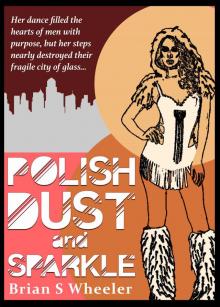 Polish, Dust and Sparkle
Polish, Dust and Sparkle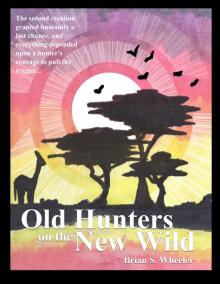 Old Hunters on the New Wild
Old Hunters on the New Wild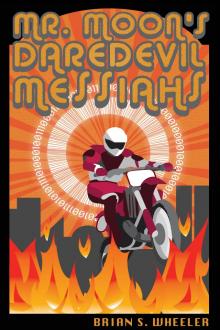 Mr. Moon's Daredevil Messiahs
Mr. Moon's Daredevil Messiahs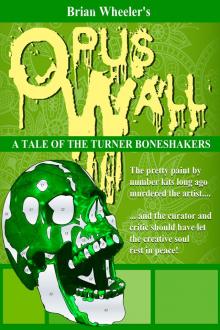 Opus Wall
Opus Wall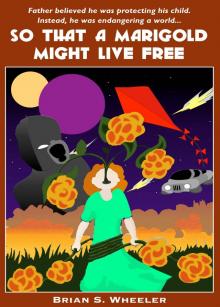 So That a Marigold Might Live Free
So That a Marigold Might Live Free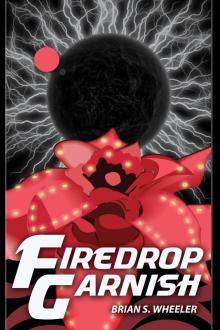 Firedrop Garnish
Firedrop Garnish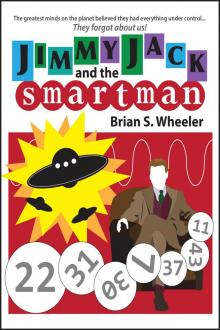 Jimmy Jack and the Smartman
Jimmy Jack and the Smartman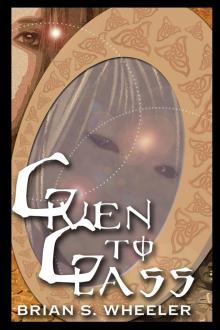 Given to Glass
Given to Glass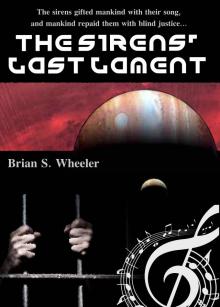 The Sirens' Last Lament
The Sirens' Last Lament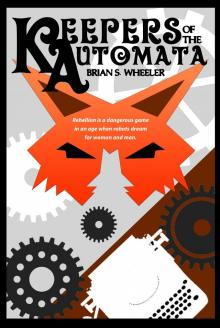 Keepers of the Automata
Keepers of the Automata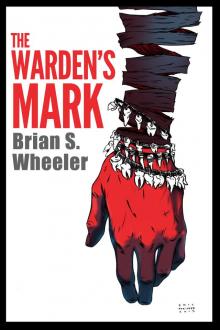 The Warden's Mark
The Warden's Mark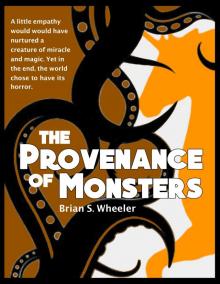 The Provenance of Monsters
The Provenance of Monsters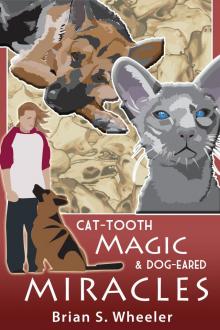 Cat-Tooth Magic and Dog-Eared Miracles
Cat-Tooth Magic and Dog-Eared Miracles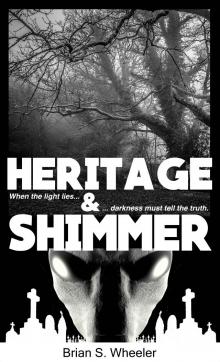 Heritage and Shimmer
Heritage and Shimmer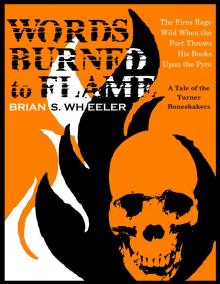 Words Burned to Flame
Words Burned to Flame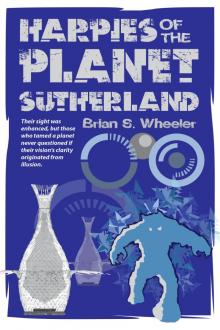 Harpies of Planet Sutherland
Harpies of Planet Sutherland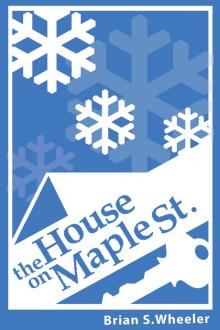 The House on Maple Street
The House on Maple Street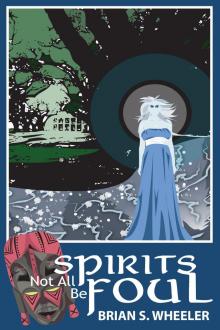 Not All Spirits Be Foul
Not All Spirits Be Foul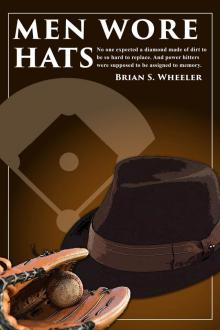 Men Wore Hats
Men Wore Hats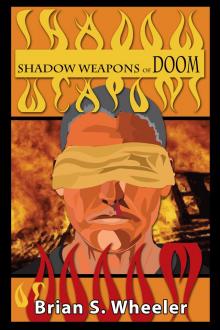 Shadow Weapons of Doom
Shadow Weapons of Doom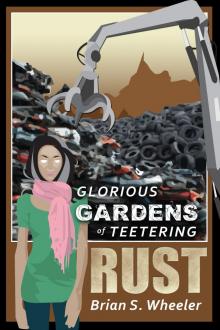 Glorious Gardens of Teetering Rust
Glorious Gardens of Teetering Rust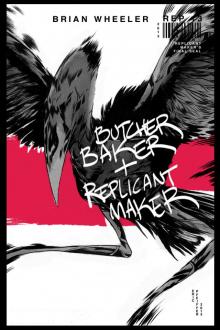 Butcher, Baker and Replicant Maker
Butcher, Baker and Replicant Maker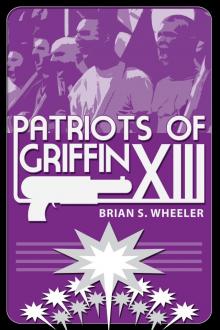 Patriots of Griffin XIII
Patriots of Griffin XIII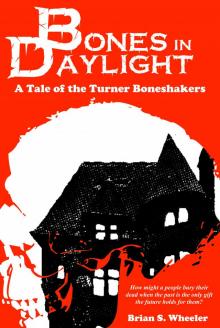 Bones in Daylight
Bones in Daylight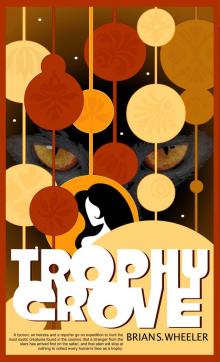 Trophy Grove
Trophy Grove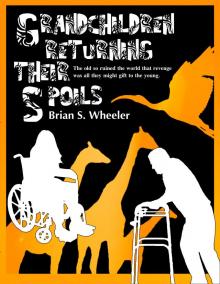 Grandchildren Returning Their Spoils
Grandchildren Returning Their Spoils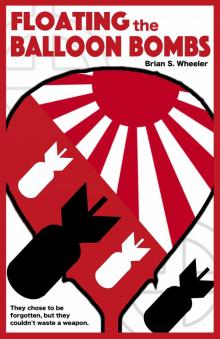 Floating the Balloon Bombs
Floating the Balloon Bombs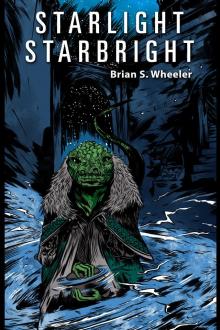 Starlight, Starbright
Starlight, Starbright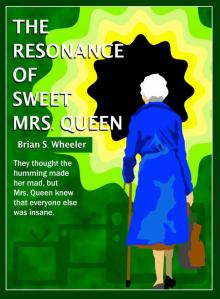 The Resonance of Sweet Mrs. Queen
The Resonance of Sweet Mrs. Queen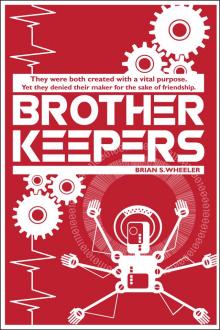 Brother Keepers
Brother Keepers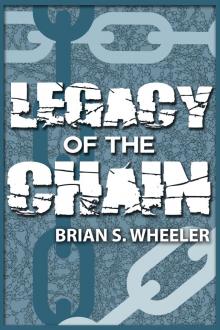 Legacy of the Chain
Legacy of the Chain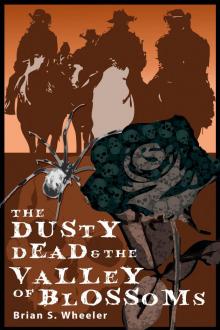 The Dusty Dead in the Valley of the Blossoms
The Dusty Dead in the Valley of the Blossoms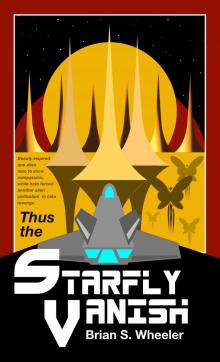 Thus the Starfly Vanish
Thus the Starfly Vanish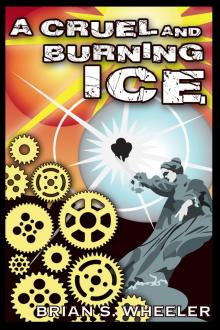 A Cruel and Burning Ice
A Cruel and Burning Ice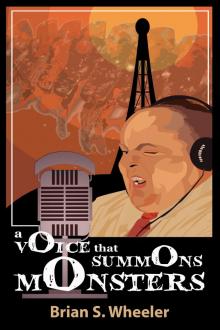 A Voice That Summons Monsters
A Voice That Summons Monsters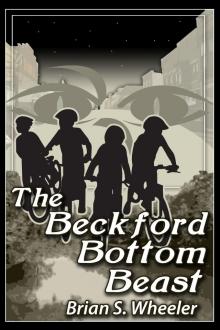 The Beckford Bottom Beast
The Beckford Bottom Beast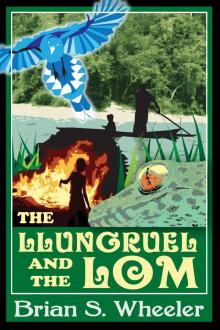 The Llungruel and the Lom
The Llungruel and the Lom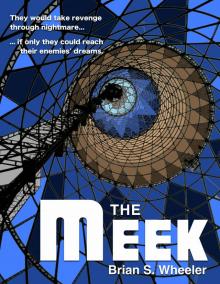 The Meek
The Meek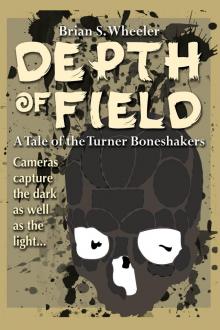 Depth of Field
Depth of Field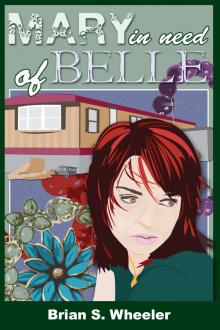 Mary, in Need of Belle
Mary, in Need of Belle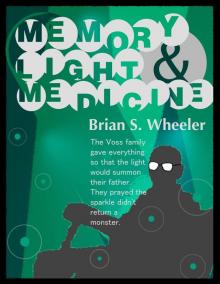 Memory, Light & Medicine
Memory, Light & Medicine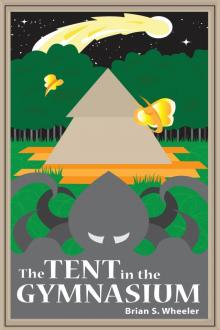 The Tent in the Gymnasium
The Tent in the Gymnasium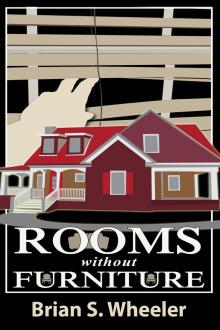 Rooms Without Furniture
Rooms Without Furniture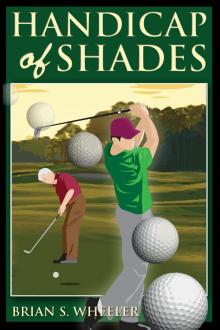 A Handicap of Shades
A Handicap of Shades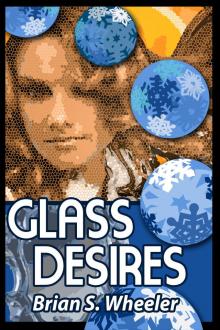 Glass Desires
Glass Desires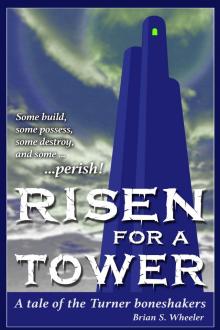 Risen for a Tower
Risen for a Tower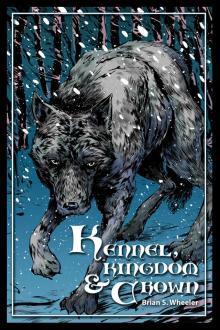 Kennel, Kingdom and Crown
Kennel, Kingdom and Crown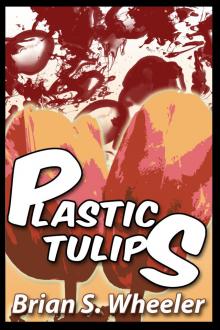 Plastic Tulips
Plastic Tulips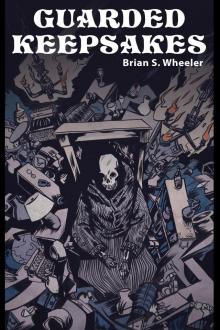 Guarded Keepsakes
Guarded Keepsakes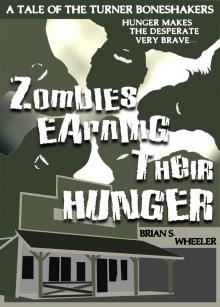 Zombies Earning Their Hunger
Zombies Earning Their Hunger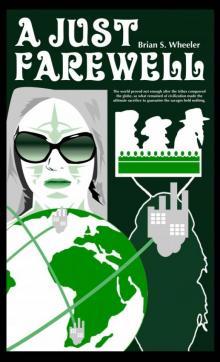 A Just Farewell
A Just Farewell